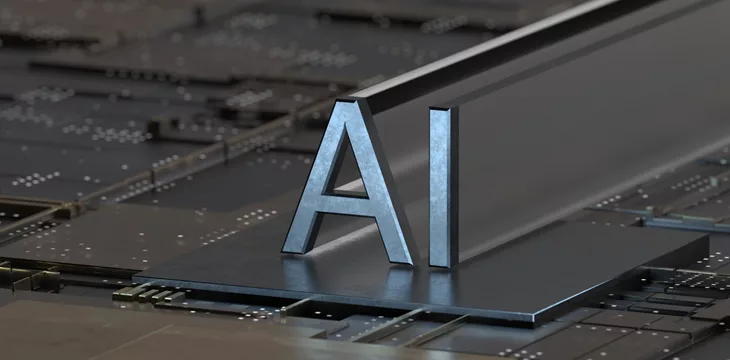|
Getting your Trinity Audio player ready...
|
Humane Ai Pin—one of the world’s first artificial intelligence (AI) wearables—is now available for pre-order.
The Humane Ai Pin is now available to order: https://t.co/2Mub1qH4u3
Orders will be delivered on a first come first served basis, starting early 2024. pic.twitter.com/rH7GL0Q2pY
— Humane (@Humane) November 16, 2023
The company behind this screenless AI device, Humane, created by ex-Apple (NASDAQ: AAPL) employees Imran Chaudhri and Bethany Bongiorno, believes it has created a better way for users to interact with the world and receive information than the existing alternative—the smartphone.
No screen? No problem
“what did @humane announce today?” pic.twitter.com/oA4KmKAL3M
— Imran Chaudhri (@imranchaudhri) July 1, 2023
Instead of having a screen, The AI Pin uses a “laser ink display” to project information onto the user’s palm. Users can control the laser display by tapping their index finger and thumb together and using other hand gestures to trigger specific commands, like pausing or playing music.
In addition to hand gestures, the Ai Pin relies on users to give audio commands, similar to Apple’s Siri, into what they call the ‘AI Mic, ‘ a feature powered by an OpenAI model that enables voice commands. But unlike other voice assistants like Siri or Amazon’s (NASDAQ: AMZN) Alexa, the Ai Pin does not have a “wake word.” Instead, it only activates when users manually push a button on the device.
Via the AI Mic, users can say commands like ‘Catch Me Up,” and the AI Pin will sift through the user’s inbox and provide updates on important information. Users can give the pin a command that makes it translate conversations in real-time, where the AI Pin will recognize and translate the language(s) being spoken around it. Users can also use commands to activate the device’s built-in camera, which will capture photos upon its release and video with a future software update.
The device can also make phone calls, send text messages, and tap into its camera to give the user information about their surroundings.
But Is this AI wearable worth it?
If you are anything like me, with prices starting at $699, along with a $24 monthly fee for a cellular plan through T-Mobile, you might be sitting there asking yourself, “Is the AI Pin worth it?”
As with any new technology, there will always be early adopters, individuals who are most likely “techy” and are eager and excited to give any new technology a go.
But for the majority of the world, the product being offered has to be substantially better than its existing alternatives—in this case, the smartphone—before an individual decides to shell out the money for the product and begin shifting away from the old alternative.
Right now, I can’t imagine the AI Pin providing a better experience than any smartphone for several reasons. Speaking voice commands into our devices is still an unfamiliar, awkward, and sometimes uncomfortable experience. This is why features like Apple’s Siri remain unpopular with most iPhone owners. Additionally, the AI Pin does very few things that our current smartphones can’t do. The most novel feature the AI Pin incorporates might be its language translation function, and even that feature, albeit valuable, would rarely be used by most individuals—although it would definitely come in handy on an overseas vacation.
I could be very wrong, but the AI Pin does not seem to have enough differentiators to set it apart from the existing alternatives in the market. It will sell, and people will use it, but the device achieving mass adoption or replacing the item it has set out to replace seems infeasible at this point in time.
Regardless, shipping of the AI Pin is expected to begin in early 2024, and if you are interested in being an early adopter, you can pre-order yours today.
In order for artificial intelligence (AI) to work right within the law and thrive in the face of growing challenges, it needs to integrate an enterprise blockchain system that ensures data input quality and ownership—allowing it to keep data safe while also guaranteeing the immutability of data. Check out CoinGeek’s coverage on this emerging tech to learn more why Enterprise blockchain will be the backbone of AI.
Watch: AI Forge masterclass: Why AI & blockchain are powerhouses of technology

 02-16-2026
02-16-2026 




